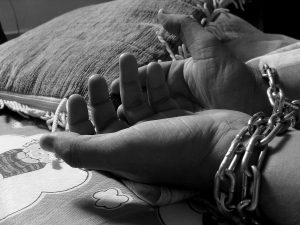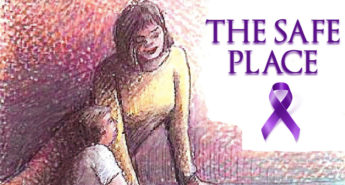 Since 2007, January 11th has been recognized as National Human Trafficking Awareness day. In 2010, President Obama took this one step further by naming January National Slavery and Human Trafficking Prevention Month. Slavery and human trafficking have been around since very early times in the world’s history. It was not until the early 1800’s that slave trade officially began and was banned by the early 1900’s, but this is something that still goes on today, especially in the way of human trafficking.
Since 2007, January 11th has been recognized as National Human Trafficking Awareness day. In 2010, President Obama took this one step further by naming January National Slavery and Human Trafficking Prevention Month. Slavery and human trafficking have been around since very early times in the world’s history. It was not until the early 1800’s that slave trade officially began and was banned by the early 1900’s, but this is something that still goes on today, especially in the way of human trafficking.
Many people do not realized how prevalent this is in the world today or how often it goes on in the United States alone. They also do not realize that a lot of the people who are trafficked are children. One in four victims of human trafficking and slavery are children, and children are four times more likely to be trafficked for labor rather than sex according to the World’s Children Network. There are an estimated 168 million children who are forced into labor in the world, but most of it is not considered trafficking but rather “hazardous work.” This type of work leaves a child not only in physical danger, but also in danger because they are emotionally unstable and do not have a good social well-being.
Since trafficking is still such a big thing in today’s society, on December 31, 2020, President Trump signed a Proclamation on National Slavery and Human Trafficking Prevention Month. In his speak that accompanied the signing, he spoke of the over 5,000 people that have been arrested during his term that were partaking in human trafficking and how he signed an executive order last year to combat human trafficking and the exploitation of children online. You can read through the proclamation here.
If you would like to help in ending slavery and human trafficking, it is important to know what signs to look for. Native News Online gives these things to look for to help prevent trafficking:
- Fearful and mistrusting
- Cannot buy their own food or clothes
- Cannot come and go freely
- No contact with relatives or friends
- Malnourished
- Has scarring, cigarette burns, or tattoos/branding
- Signs of substance abuse or addiction
- Has traumatic brain injury, post-traumatic stress disorder, or is anxious or depressed
If you or anyone you know is a victim of domestic violence, please contact The Safe Place at 1-888-552-2501, our office at 501-354-1884, or our Perryville location at 501-889-2030.
Sources:
NATIONAL HUMAN TRAFFICKING AWARENESS DAY – January 11, 2021 | National Today
Child Trafficking Statistics – World’s Children
Proclamation on National Slavery and Human Trafficking Prevention Month, 2021 | The White House




Leave a Reply